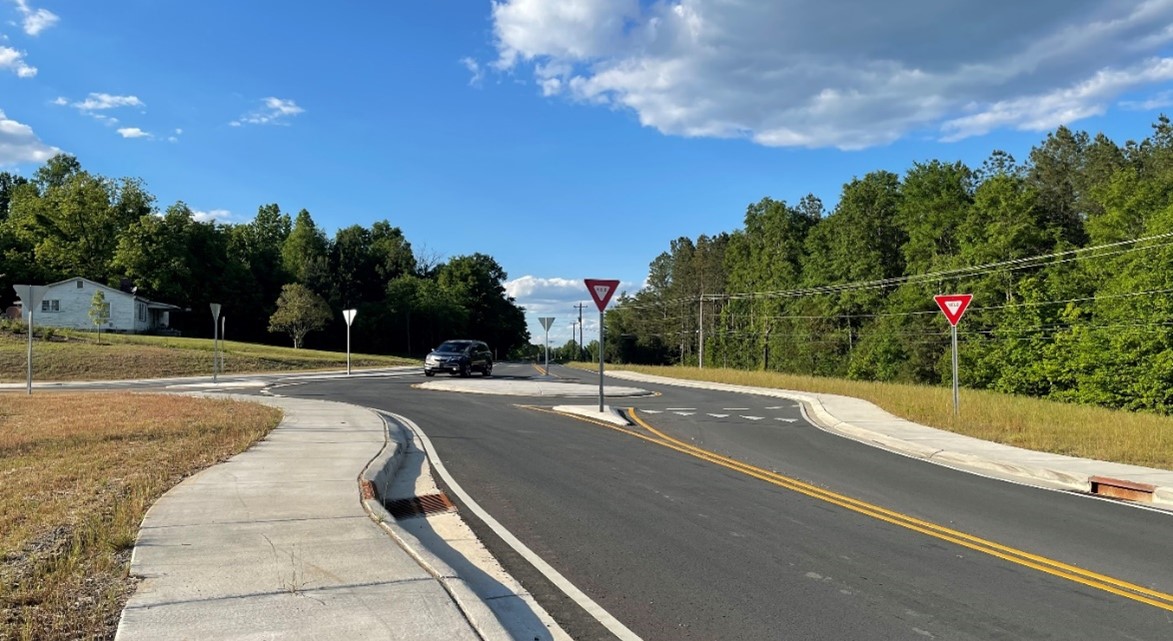This
research project focuses on quantifying the safety benefits of mini-roundabouts
by developing crash modification factors (CMFs). Crash, traffic volume, and
geometry data for 25 mini-roundabouts in eight states (Georgia, Iowa, Michigan,
Minnesota, Missouri, North Carolina, Virginia, and Washington) was collected to
conduct before and after analysis using the naïve method and the Empirical
Bayes (EB) method.

The results indicate a decrease in the number of total crashes
and fatal and injury (FI) crashes when a two-way stop-controlled or one-way
stop-controlled (TWSC or OWSC) intersection was converted to a mini-roundabout.
However, the results indicate an increase in property damage only (PDO) crashes.
Similarly, the results indicate an increase in the number of total crashes, FI
crashes, and PDO crashes when an all-way stop-controlled (AWSC) intersection was
converted to a mini-roundabout.
The recommended CMFs for converting a TWSC/OWSC
intersection to a mini-roundabout are 0.83 for total crashes, 0.41 for FI
crashes, and 1.09 for PDO crashes. The recommended CMFs for converting an AWSC
intersection to a mini-roundabout are 3.25 for total crashes, 1.74 for FI
crashes, and 3.83 for PDO crashes.
